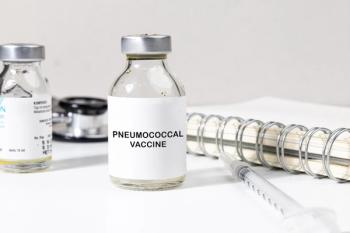
Father's death inspires pharmacist to educate others about Alzheimer's
Efforts to educate others about Alzheimer's disease earns hospital pharmacist Eisai award.
"I don't have a monetary goal," she explained, "but a number-of-people goal. I don't measure [the fund-raising] in terms of how much money I raise. I look at it in terms of how many houses I reach."
This year, Salamon reached 50 houses, a personal record. She also ventured about a mile from her Cedar Rapids, Iowa, home-the farthest she has ever gone to raise funds for the association's annual Memory Walk. "Once I've informed a group, I want to get to the next group," Salamon said. "I go out every chance I get and knock on doors. If I knock on a door and get no answer, I go back until someone is home and answers. I keep track of the houses I hit because I want to get everyone. I want to let them know."
"Anne is just so passionate about the disease and about educating others," said Tracey Robertson, a program director with the East Central Iowa chapter of the national Alzheimer's Association. Robertson nominated Salamon for the award. "Her passion is just unbelievable."
Robertson works closely with Salamon on the association's Program Affairs subcommittee, which plans programs and events to educate patients, caregivers, healthcare providers, and members of the general public about Alzheimer's. The illness costs businesses and government more than $148 billion annually. It destroys brain cells, and leads to memory loss, changes in behavior, and concentration problems. It is the seventh-leading cause of death in the United States.
National figures also show that deaths from Alzheimer's disease jumped 32.8% between 2000 and 2004. Authorities expect the number of deaths to climb by 50% over current levels during the next 20 years as baby boomers turn 65, the age at which people are at greatest risk of developing the disease.
Salamon's personal crusade to educate those around her about Alzheimer's disease began with her father's diagnosis and the misconceptions healthcare providers had about his condition. On the second day of his hospitalization, Salamon said, her father's doctor suggested she think about his code status.
"He had no idea my father was a functioning individual the day before," Salamon said. "As far as this doctor was concerned, my father was a bedridden vegetable. He had no idea that my father was an individual who still had a life left to live."
Shortly after her father's diagnosis, Salamon found solace in the local chapter of the Alzheimer's Association. The organization, she said, gave her an outlet to discuss the frustrations she had with her father's care, and it also provided her with a "shoulder to cry on" after her father died from the disease in March 2002.
Newsletter
Pharmacy practice is always changing. Stay ahead of the curve with the Drug Topics newsletter and get the latest drug information, industry trends, and patient care tips.























